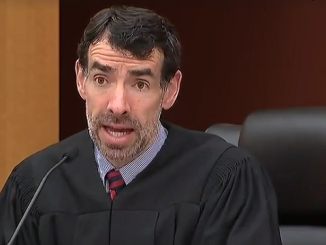
A convicted murderer slated to die by lethal injection on Tuesday has mounted an eleventh-hour bid to be killed by firing squad instead. Lawyers for the condemned, J.W. Ledford Jr., argue their client has developed a tolerance that may complicate matters if the state attempts to execute him as planned next week with the barbiturate pentobarbital.
Ledford has used the drug gabapentin for more than a decade to treat chronic nerve pain, according to his attorneys. Because the drug has been linked to dulling the affects of pentobarbital, however, they argue lethal injection in this case may amount to cruel and unusual punishment.
“Accordingly, there is a substantial risk that Mr. Ledford will be aware and in agony as the pentobarbital attacks his respiratory system, depriving his brain, heart, and lungs of oxygen as he drowns in his own saliva,” his lawyers wrote in a lawsuit filed Thursday in U.S. District court requesting an alternative method of execution.
District Judge Steve Jones dismissed the suit Friday, ruling Ledford’s attorneys failed to show execution by pentobarbital was “sure or very likely” to cause him extreme pain as prohibited by Supreme Court precedent.
Ledford’s legal team then filed a notice of their intent to appeal to the 11th U.S. Circuit Court of Appeals shortly following Friday’s ruling.
Ledford, 45, is slated to die at 8 p.m. Tuesday, May 16, pursuant to a death sentence handed down for the 1992 murder of his former neighbor. If conducted as planned, the execution will be the first in the Peach State this year. Georgia carried out nine death sentences in 2016 — more than any other state last year.
While three states — Mississippi, Oklahoma and Utah — allow prisoners to be killed by firing squad, lethal injection remains their primary method of execution, according to the Death Penalty Information Center.
Given the prisoner’s long-term exposure to gabapentin, death by firing squad poses a less chance of “operator error,” Ledford’s attorneys wrote in Thursday’s suit, CNN reported.
By Andrew Blake
Source: washingtontimes.com





Be the first to comment